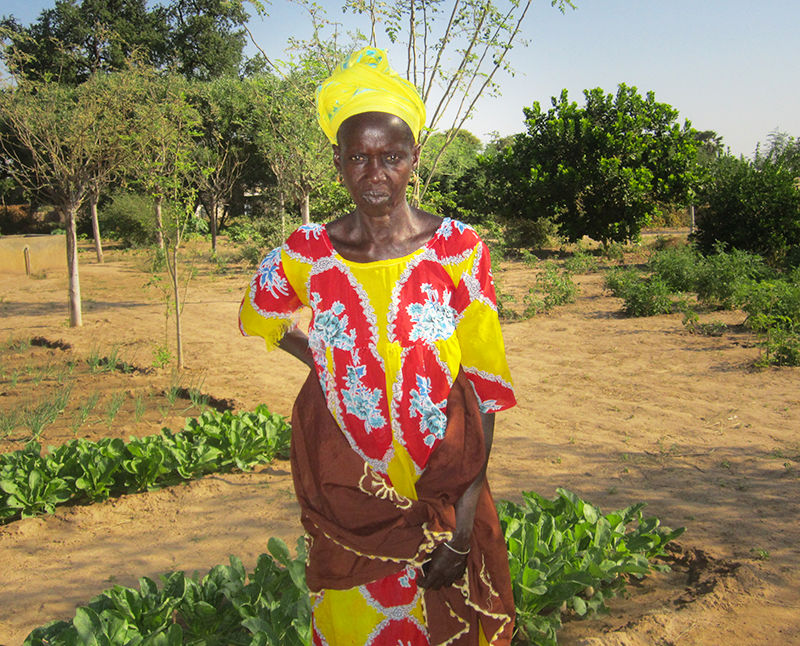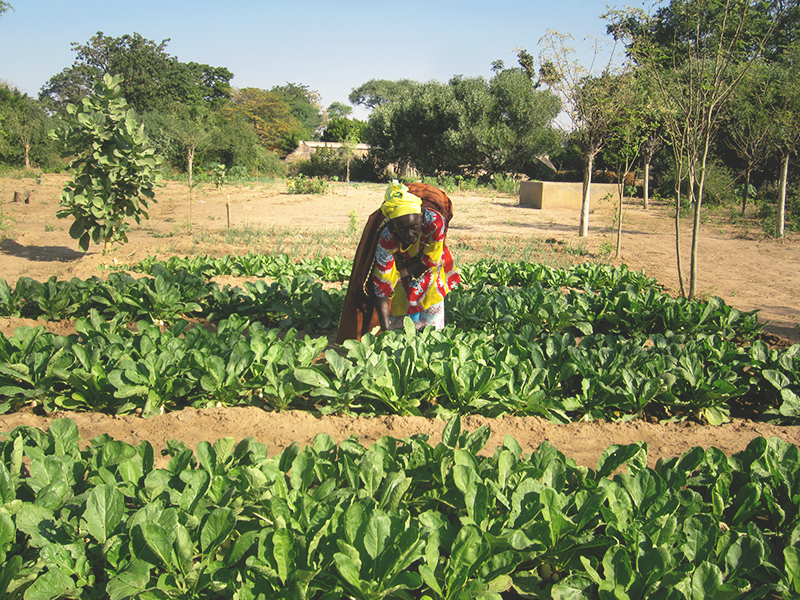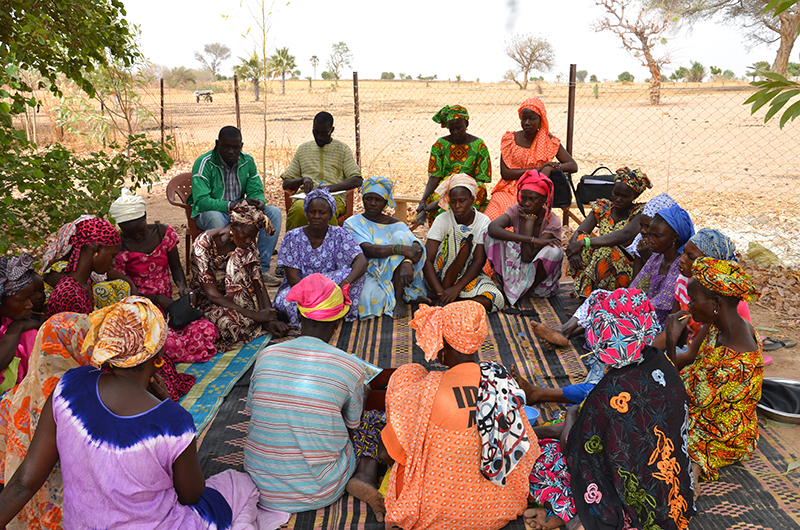Communities in rural Senegal bear an enormous brunt of global climate change. This includes everything from desert encroachment, decreasing rainfall, to shorter growing seasons. In fact, the growing season is only 3-4 months out of the year! Because rural communities depend on agriculture to earn a living, shorter growing seasons mean that people have nine months where they need to find work. This increases rural migration as men will often look for work in the cities or even abroad. Oftentimes women will stay in the communities to take care of their children without a means to generate income. CREATE! seeks to address this challenge through self-development training focused on building community self-sufficiency over five years.
The village of Gagnick Mack is in its fifth year of training with CREATE! and will soon graduate to self-sufficiency. This means that CREATE! technicians will no longer train and guide village members as they have the tools and experience to run the village programs on their own. Gagnick Mack’s community garden president, Awa Diop, speaks with CREATE!’s team about the changes she has seen happen in her community, including the decrease in rural migration.
Developing New Opportunities
One of the main reasons that people can’t sustain crops for more than three months out of the year is because they don’t have abundant access to affordable water. However, this changed in Gagnick Mack when CREATE!’s technicians rehabilitated their older well and installed a solar-powered water pumping system. “Before CREATE!, we couldn’t garden because the community water comes from the water tower, and it is salty and very expensive,” Awa explains. “Many of us used to drink the salty water because it wasn’t easy to travel over a kilometer for fresh water. Now we have easy access to clean water without leaving the village.”
An increase in clean, affordable water also means an improvement in overall health. “The well water has decreased many sicknesses in the village,” Awa tells us. Clean water provides a healthier, safer community environment where people have the energy to engage in multiple activities and support their families.

Community Garden President Awa Diop in Gagnick Mack.
Creating Occupations in Gagnick Mack
With regular access to water, community members in Gagnick Mack can develop a year-round garden which means income-generating opportunities. “The cooperative garden has decreased rural migration because we have an activity in our own village so we don’t need to leave our family,” Awa explains. She recalls how she and other women in Gagnick Mack had a lack of vegetables during the nine-month dry season. “We used to buy vegetables in the weekly Guinguineo market over seven kilometers away. Because the market is far away, we couldn’t eat vegetables frequently.” She adds, “Since we started growing vegetables in the village, many people come to buy the vegetables, so we are supporting people outside of our community too.” Not only are women creating food security and generating income in their village, but they are also helping neighboring communities too.
Along with being the garden president in Gagnick Mack, Awa also supports a family of nine. “My children like all the vegetables I bring home, and my youngest one likes eggplant the most,” She tells us. Awa also notes how she can see the difference in her family’s house now that they have a diet rich in fresh vegetables. “Our vegetables are contributing to our health because they are very natural and rich in vitamins.”

Community Garden President Diop tends to the turnip beds.
Increasing Financial Literacy and Resources
Now that Awa and other women are generating income from Gagnick Mack, they have an increase in cash. However, rural communities in Senegal do not have easy access to financial institutions. “It is not easy to take out loans because we don’t have a bank in the village, we are far from any departments,” Awa describes. To combat this challenge, CREATE!’s team worked with Awa and other women in Gagnick Mack to develop a community VSLA (Voluntary Saving & Lending Association). Through the VSLA, community members save small amounts of money each week and then make loans to each other to cover business, personal, and household costs. All activities are carried out in full view of the entire association, building trust, and creating transparency among members. “With the money I save, I plan to buy sheep for Tabaski,” Awa tells us.
Decreasing Rural Migration for Generations to Come
As garden president in Gagnick Mack, Awa is inspiring other women in the village to take charge of the development of their community. When asked about her hopes for the future, Awa tells us, “I wish the success for our children in the future and the development of our village.” Stories like Awa’s go to show how deeply people’s lives can be effected through training and empowerment at the village level. This is the kind of success we want for women across all of our partner communities in rural Senegal. Consider helping more women like Awa by donating to CREATE! today.

